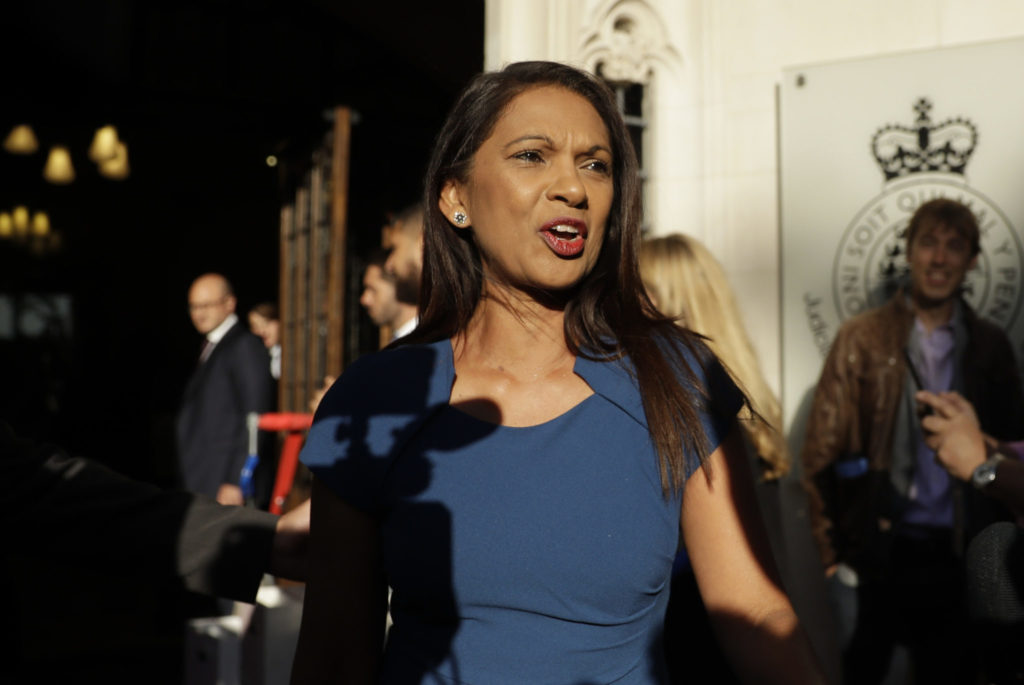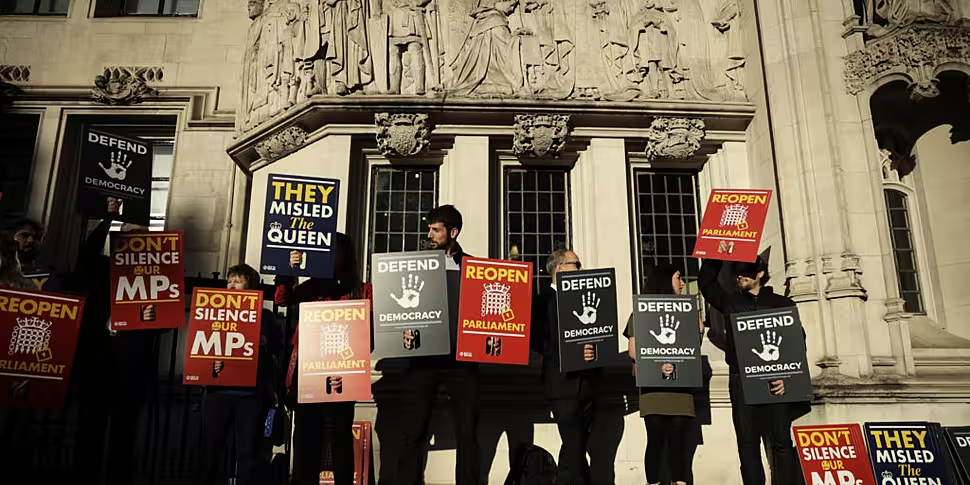The Supreme Court in London has begun hearing two appeals over the British Prime Minister's decision to prorogue parliament.
Boris Johnson's government prorogued parliament last week until mid-October - meaning MPs are not sitting for more than a month in the lead up to the current Brexit deadline of October 31st.
The government has insisted the suspension is simply to allow for a routine Queen's Speech to set out their legislative agenda.
However, opponents have claimed it's an attempt to stymie parliamentary power in the lead-up to Brexit.
Last week, judges in Scotland said the suspension was unlawful.
However, judges at the High Court in England had earlier found Mr Johnson's decision was a 'purely political' one and dismissed the case.
Both cases are now being appealed in the British Supreme Court, where a panel of 11 judges will hear the arguments over the next three days.
A ruling is not expected until later this week at the earliest.
Opening proceedings, President of the Supreme Court Brenda Hale said: "We have before us two appeals - one from England & Wales, and one from Scotland. They both involve the same issue - whether it was lawful for the Prime Minister to advise [the Queen] to authorise the prorogation of parliament by order in council.
"That this is a serious and difficult question of law is amply demonstrated by the fact that three senior judges in Scotland have reached a different conclusion from three senior judges in England & Wales. The Supreme Court exists to decide such difficult questions of law."
She stressed that the court is not concerned "with the wider political issues which form the context for this legal issue" - noting it will not determine when and how the UK leaves the EU.
Cases
Campaigner Gina Miller is leading the English case, and has been joined by the likes of former British prime minister John Major.
 Anti Brexit campaigner Gina Miller arrives at the Supreme Court in London, Tuesday Sept. 17, 2019. (AP Photo/Matt Dunham)
Anti Brexit campaigner Gina Miller arrives at the Supreme Court in London, Tuesday Sept. 17, 2019. (AP Photo/Matt Dunham)In their written case to the Supreme Court, Ms Miller's legal team argues: "To prorogue parliament for such a lengthy period removes the ability of parliament to take such action as it sees fit on issues of public policy relating to the arrangements for the UK to leave the EU when time is very much of the essence."
SNP MP Joanna Cherry in her case argues that the decision to suspend parliament "had the intent and effect, in fact, of preventing Parliament from holding the government politically to account".
The British government's legal team, meanwhile, has insisted the decision to prorogue parliament is "intrinsically one of high policy and politics, not law".
The court is due to sit for several hours from 10:30am this morning, with hearings scheduled until 3pm on Thursday afternoon.









